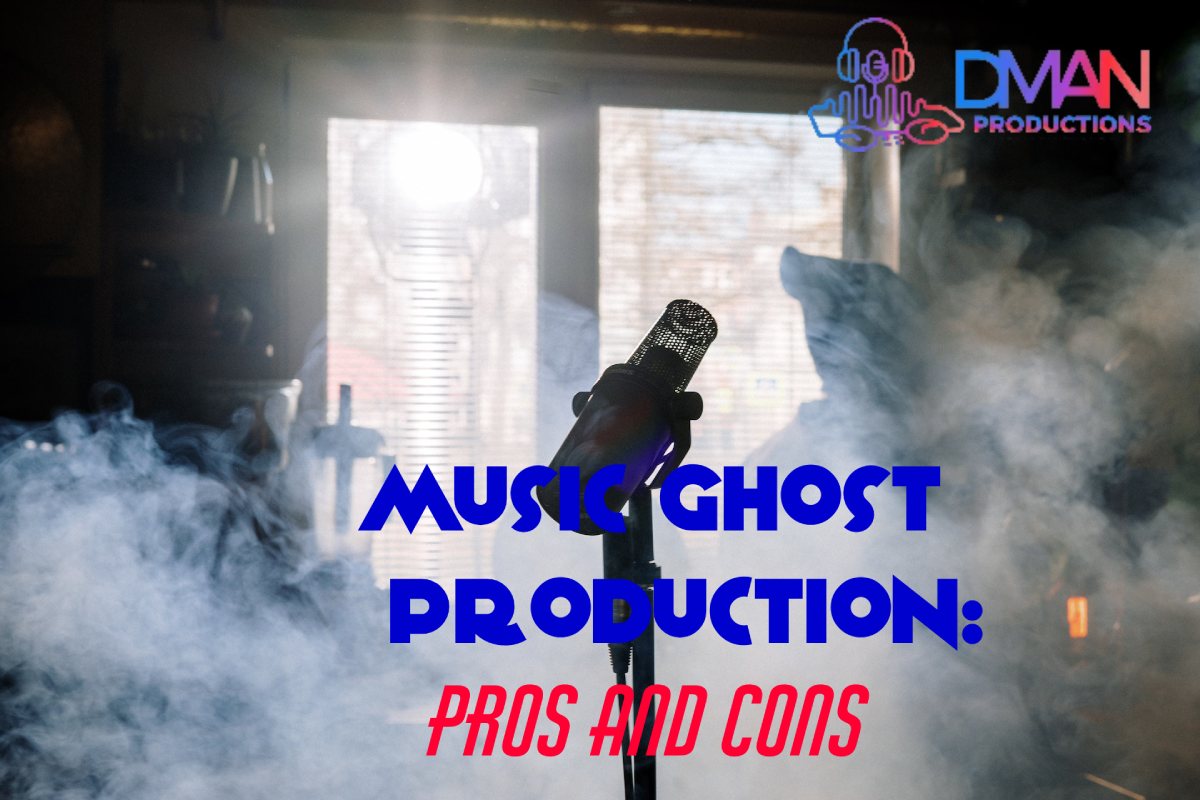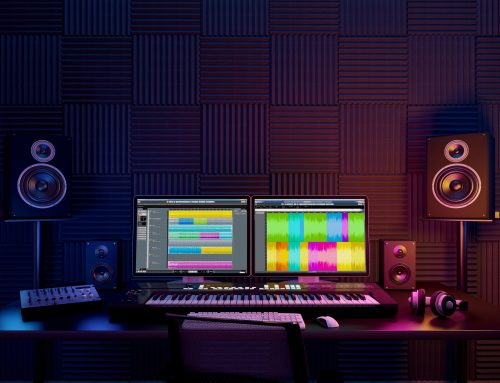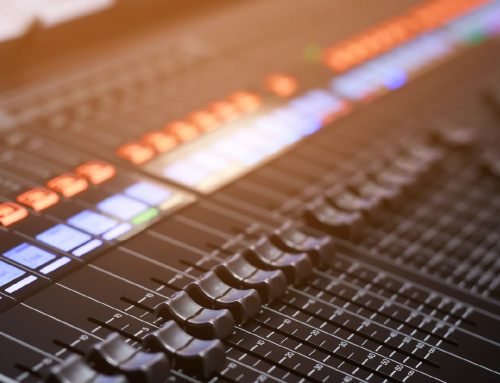
Ghost production is a complicated and controversial topic that has gained popularity in recent years, especially EDM ghost production. With the strong competition in the world of music these days and other reasons, many artists hire ghost producers to help them create high-quality tracks.
However, there is a lot of debate about the pros and cons of ghost production, the musician’s artistic integrity, who is the right ghostwriter, and more.
So, in this article, we will examine ghost production from different aspects, its pros and cons, and discuss how it is typically done. In addition, we will provide some tips to help you choose the right ghost producer.
In our upcoming article, we will also review the ethical and legal implications of hiring a ghost producer.
Do you like to turn your musical vision into a top-notch artistic piece of music? Call to discuss your project.
What Is Ghost Production in Music Production?
Ghost production is a collaborating process between an artist and a ghost producer that results in an original piece of music or a remix. In this teamwork, the ghost producer only works behind the scenes and never takes credit for their contribution to the project, hence the name. Therefore, in a ghost production, the ghostwriter remains anonymous.
Despite all the controversies and even some legal disputes that have happened, ghost production is a legal and popular practice, particularly in electronic dance music (EDM) and its different types, such as trap and dubstep music.
Below, we will review who is a ghostwriter in music production and how ghost production usually works.
Who Is a Ghost Producer or a Ghost Writer?
A ghost producer is a skilled music producer who relinquishes any rights to the music they produce. In addition, they are required to sign a non-disclosure agreement (NDA) to ensure that their involvement and contribution to the project remain confidential. In this way, the artist/DJ can be recognized as the sole creator of the ghost producer tracks.
Ghost writers collaborate with
- An artist/a band,
- A DJ,
- A record label.
They take the artistic vision from artists/DJs and use their expertise to produce a high-quality track that aligns with the artists/DJs’ style. As a result, the artists/DJs maintain a consistent image and style to their audience.
So, ghost producers must be skilled in the following areas.
- Music production,
- Music composition,
- Mixing,
- Mastering,
Sound design, - Beat making,
- and any other knowledge and technical skills required to craft professional songs.
In all, although ghost producers are compensated (sometimes handsomely) for the role they play in a music project, their name is never mentioned as a creator of the songs they ghost-produce, and they cannot breach the confidentiality agreement. So, ghost writers do not typically get public recognition for their artistic contributions.
How Does Ghost Production Work?
There are a lot of ghost production sites and each ghost producer service can have its special workflow and level of collaboration. However, the main process of ghost production remains the same.
Aside from the agreement on costs and copyright matters, the process is divided into 5 steps.
1. Communicating the Artistic Vision
As mentioned above, the DJ, artist, or record labels who wish to commission a track, explain their preferences and artistic vision for the song. These include the track’s genre, mood, style, etc.
If they can communicate their artistic vision clearly and effectively, the outcome will be more in line with their own style and expectations. Moreover, the track would serve the purpose they have in mind better.
2. Creating the Track
Once the ghost producer gets all the information they need, they start the creative process of melody composition, chord progressions, sound design, arrangement, and so forth. While doing these, they keep the artist’s desired features and style in mind.
3. Giving Feedback and Requesting Revisions
As the ghostwriter is working on the track, he/she may share the in-progress version with the artist to get some feedback and ensure the work is meeting the client’s expectations. The artist/DJ might also request some revisions and modifications at this stage.
4. Finalizing the Production
After the necessary adjustments, if both sides are happy with the result, the ghost writer finalizes the track. This stage includes refining and polishing the mix, adding some effects, and mastering the song.
5. Delivering the Files and Payments
When the final version of the track is ready, its high-quality audio files are delivered to the artist/DJ. Also, the ghost producer should be paid completely once the files are delivered. Of course, this can vary according to the agreement. Some ghostwriters prefer a one-time fee, while others like to receive a percentage of royalties.
At the end of this process, the artist/DJ/record label can release the track, perform it, and promote it under their own name, without mentioning the ghost producer’s name.
Our music production services are budget-friendly and affordable.
Request a quote now.
Pros and Cons of Ghost Production
Ghost production can have advantages and disadvantages for both ghost producers and artists/DJs. Let’s go over the pros and cons for each side separately.
Opportunities and Obstacles to Being a Ghost Producer
We already talked about the skills a ghostwriter in the music industry must possess to be considered successful and professional. But being a ghost producer comes with its own advantages and disadvantages.
Some of the main benefits include
- Freedom to work on different styles and genres, which lifts the limitations of your creativity,
- Financial benefits without worrying about marketing, live performances, etc.,
- Creating a network of contacts by collaborating with well-known artists/DJs,
- Honing your skills in various genres and becoming more experienced in composition, sound design, mixing, mastering, and other aspects of music production.
On the other hand, as a ghost producer you
- may never receive recognition and credit for your hard work and artistic skills,
- have to adapt to the artist’s expectations and demands which means your own artistic visions may find no place in the production,
- have no rights to the music you produce.
So, it very much depends on your objectives and preferences. If you value acknowledgment and recognition for your music and wish to express your artistic visions, becoming a ghost producer might not be the right path for you.
Advantages and Disadvantages of Using Ghost Production for Artists/DJs
There are quite a few important benefits to hiring a ghost producer. That’s why it has become so popular these days.
- The division of labor in ghost production makes the job more efficient. Being a producer may not be the artist/DJ’s strong suit. So, by leaving this aspect of the job to professionals (ghost producers), they can focus on the parts they are actually good at, such as performance or writing lyrics.
- By hiring a professional ghostwriter, artists can improve and enhance the quality of their work. The reason is that accomplished ghost producers are highly skilled and their expertise can take the artist’s music to the next level.
- Ghost producers are experts in various genres and styles, so artists/DJs can count on them for any project.
- Artists/DJs can save their time and energy for marketing, live performances, and other aspects of their careers.
However, there are a few drawbacks that should be considered carefully as well.
- It can question the authenticity, credibility, and integrity of an artist. So, fans might get disappointed if they discover that their favorite artist has been taking credit for another producer’s work.
- As artists should leave a big part of the creativity to the ghostwriter, they might lose their artistic vision, style, and individuality.
- Hiring a ghost producer can be expensive, at least for independent artists who are at the first steps of their careers.
Ultimately, an artist or a DJ should consider all the aspects of using ghost production before commissioning a song. This decision usually depends on the artist/DJ’s goals, aspirations, values, and resources.
How Can an Artist Maintain Their Integrity While Using Ghost Production?
It seems that the biggest disadvantage of using ghost production for artists/DJs is loss of integrity. Now, there are a few tips that can help artists ensure their artistic integrity while utilizing ghost-producing services.
- Having a clear artistic vision and communicating it effectively to the ghost producer. They should think about the style, genre, mood, theme, and what they wish to convey through that piece of music. So, it is not a good idea to leave all the creativity to the ghost producer.
- Participating more actively in the production process. Artists/DJs should provide feedback, request some adjustments and revisions, and generally retain their creative control over the production. This leads to a track that reflects their artistic expression and style better.
- Making quality a priority. Artists/DJs’ first priority must be the quality of the final track. Therefore, they should do some quality control during the production process to ensure the track meets their standards.
- Hiring the right ghost producer. Read more about it in the section below.
To sum up, if artists/DJs try to play an active role in the process of ghost production, they can retain control over the quality and the creative work. So, they can avoid being overshadowed by the ghost producer’s personal artistic expressions and aspirations.
Did you know you can hire our music experts from anywhere in the world? Our online music production services have allowed us to collaborate with great musicians from various countries.
Contact us from the comfort of your home.
How to Choose the Right Ghost Producer?
There are a lot of ghost producer platforms that you can access remotely. So, finding a ghost producer is very easy these days. However, artists/DJs must consider several factors to make sure the ghost producer is the right one for them.
- Artists/DJs should look for a ghost producer that can fulfill their specific requirements (for example, composition, sound design, mixing, or the whole production) and standards (the quality of their work). Also, although ghostwriters are skilled in various genres, they might be more experienced in certain styles and genres.
- Artists should listen to the ghost producer’s previous works in their desired genre to assess the quality and find out if their style is compatible with each other.
- If a fellow artist can recommend a ghostwriter, it will be easier to trust him/her and start a successful collaboration.
Artists/DJs should study the ghost producer’s discography and portfolio to evaluate his/her versatility, adaptability, consistency, and quality of work. - It is not a good idea to commission a song right away. Artists should communicate with the ghost producer to see if they can get along and understand each other. Effective communication is crucial for a successful collaboration.
- Assessing the ghostwriter’s professionalism and reputation is important to make sure he/she respects the agreement, and the project’s deadlines, and also maintains confidentiality.
- The more experienced a ghost producer is, the more expensive the service. So, before choosing a ghostwriter, artists/DJs should determine their budget.
- Artists must only work with ghost producers who are ready to make clear agreements and contracts. This is essential to avoid legal disputes and other problems. In our next article, we will discuss the ethical and legal implications of ghost production in detail.
Hire Our Music Producers to Level Up Your Tracks
We have reviewed the pros and cons of ghost production, the qualities of a good ghost producer, and why some artists prefer to use ghost production. Now, you can make an informed decision about hiring or practicing ghost production services.
At DMan Productions, we have been helping artists and DJs improve their songs and achieve a higher level of quality. Our professional producers and sound engineers can assist you in music production, mixing and mastering, and other music-related processes.
Although our studio is located in Kansas City, Missouri, we offer all these services online. To discuss your project, give us a call at 816-313-2788 from wherever you are or fill in the form below.


